Educating Bartenders Worldwide.
By Beverage Trade Network
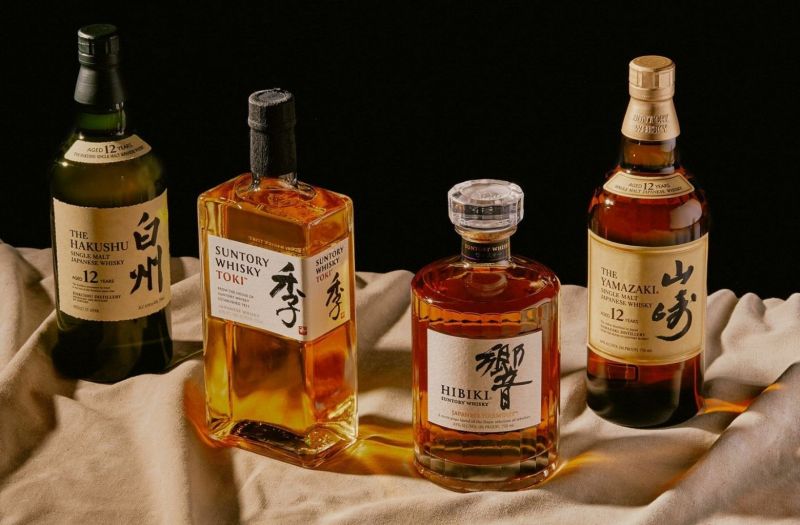
Emerged as an international sensation almost 11 years ago, the share of the Japanese whisky market was majorly taken over by the two giants Suntory and Nikka which is now owned by Asahi. With the demand and the prices for the acclaimed bottles of Japanese whiskies going up, the Japan Spirits & Liqueurs Makers Association (JSLMA) decided to regulate the production. In February of 2021, the association established new labeling standards for Japanese whisky which were to be taken into effect by April 1, 2021. While the bottles that were already in production and on sale had the option to comply with the mandate by March 31, 2024. These guidelines are non-legally binding for the producers although they have been agreed upon by the Japanese industry as a whole. With these laws put in place, the production of Japanese whisky has been confined to Japan now and is more authentic. Along with this, there is less scope for counterfeit. For a whisky to be labeled Japanese whisky, it has to comply with the following guidelines
[[relatedPurchasesItems-31]]
- It must always use Malted Grains but may also include other Cereal Grains
- The water used to make the whisky must be extracted in Japan
- Saccharification, fermentation, and distillation must take place at a Japanese distillery
- It must be matured in wooden casks stored in Japan for at least three years
- The bottling must take place in Japan, with a minimum strength of 40% ABV
- A plain caramel coloring may be used
- A whisky that does not comply with the above guideline may not use the names of the geographical locations in Japan, the Japanese flag, or the name of the people that evoke the country in their labeling.
Japanese whisky dates back to 1923 when two men Masataka Taketsuru and Shinjiro Torri realized that they wanted to learn whisky making. Taketsuru went to Scotland in 1918 to learn the art of making whisky and returned to Japan married and with the zeal to open his own distillery. His idea was to build a distillery on the remote northern island of Hokkaido which was a part of the country that mirrored Scotland the most. But due to its poor connectivity with the market, Taketsuru and Torri chose to build the distillery in the outskirts of Kyoto in 1923 by the name Yamazaki. Japan’s first whisky distillery commercially started selling whisky in 1924 and was widely known within the country. A few years down the line, Taketsuru started his own company known as Nikka and now it dominates the market along with Suntory which is owned by Torri. At present, Japan is home to around 24 bonafide whisky distilleries and that number keeps growing.
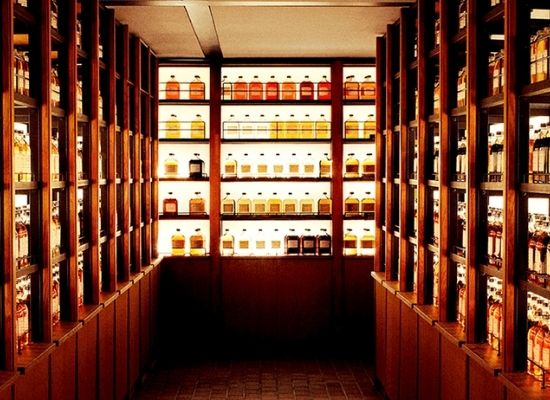
Yamazaki Distillery; Image Source - Oishii Desu
According to the Distilled Spirits Council of the United States, Japanese whisky imports recorded a value of US$ 67 million in 2020. The Japanese whisky has been one of the most sought-after categories of spirits in the world and accounted for a global market size of US$ 600.2 million and was projected to grow at a CAGR of 9.4% by 2025 (Source - MillionInsights). Having shown unparalleled growth over the past few years, many distilleries could not meet the demand for some of their best-selling expressions. The demand for Japanese whisky has reached a fever pitch with its price surging across the world. At present, Asia-Pacific is the largest market for Japanese whisky and its sales have been relatively high in France, China, the U.S., and the Philippines. The major growth of Japanese whisky is spurred by the two major distilleries, Nikka Whisky Distilling Company and Suntory Beverages which owns the oldest commercial whisky manufacturer Yamazaki.
Japanese whisky is enjoying a boom in popularity across the globe due to several factors. One of the interesting things about Japanese whisky houses is that they are more likely to champion the Master Blender than the Distillers as for these whiskies blending is the true art. The spirit category owes its popularity to Bill Murray who in the hit movie ‘Lost in Translation’ struggled over a dram of Hibiki 17 and a language barrier. The humorous scene was a powerful introduction of Suntory and Japanese whisky to the global market and led to its further demand. Later, Japan’s early debt to Scottish whisky techniques masked the innovative streak in the country’s whisky industry and displayed a distinct character in the whiskies. Japanese whiskies have skyrocketed to international fame due to many international awards the bottles have received year after year including the ‘World’s Best Grain Whisky’, and ‘World Best Whisky Producer’ at various competitions in the US and UK.
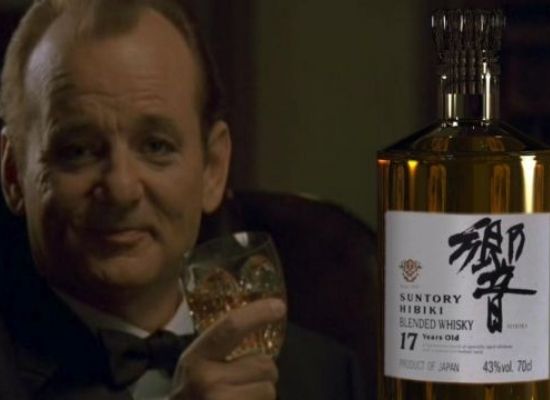
Bill Murray in Lost in Translation; Image Source - Sportern
Among some of the other key factors that have driven the demand and consumption of Japanese whisky are the increasing inclinations towards the cocktail culture and experimental mixology. Growing income levels due to rapid urbanization in countries such as India, Thailand, and China are expanding awareness regarding alcoholic drinks. This is also complementing the global market of Japanese whisky and driving its demand in the global market. Today Japan ranks as the fourth-largest whisky producer in the world. All of the above, paired with passion, high quality, and master craftsmanship that goes into production has made Japanese whisky a global phenomenon.
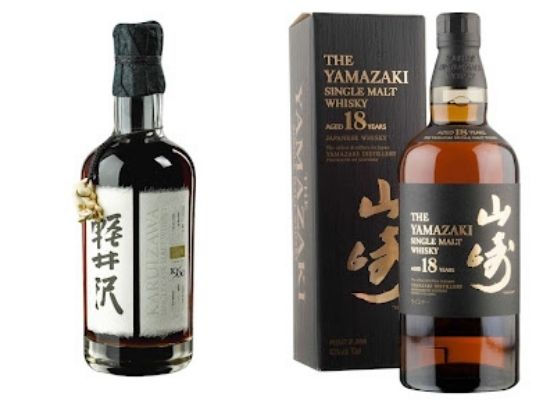
Karuizawa 52YO Zodiac Rat (Left) and Yamazaki 18YO (Right); Image Source - Sotehbys and Dekanta
The growing demand for Japanese whisky has influenced their prices and bottles like Yamazaki 18 Year Old which was once sold for $100 now sell for five times the price and is an impossible find in the market. Another bottle was of Karuizawa's 52-Year-Old Zodiac Rat which was sold at an auction in London for US$ 435,273 in 2018. Enso Japanese Blended Whisky also won a Gold Medal at the London Spirits Competition 2021. These international awards for Japanese whiskies have influenced their global growth and have led to two decades of their surging popularity. The regulations on their production, scarcity and higher demand have driven the prices up and the world can’t get enough of Japan’s liquid gold. Here’s a list of the Top 10 Japanese Whiskies That You Must-Try!
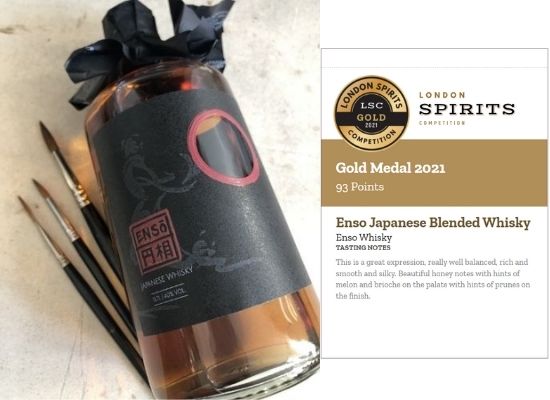
Enso Japanese Blended Whiskey winner of Gold at London Spirits Competition; Image Source - London Spirits Competition
Header Image Source - Gear patrol
Article by Shreya Kohli, Beverage Trade Network